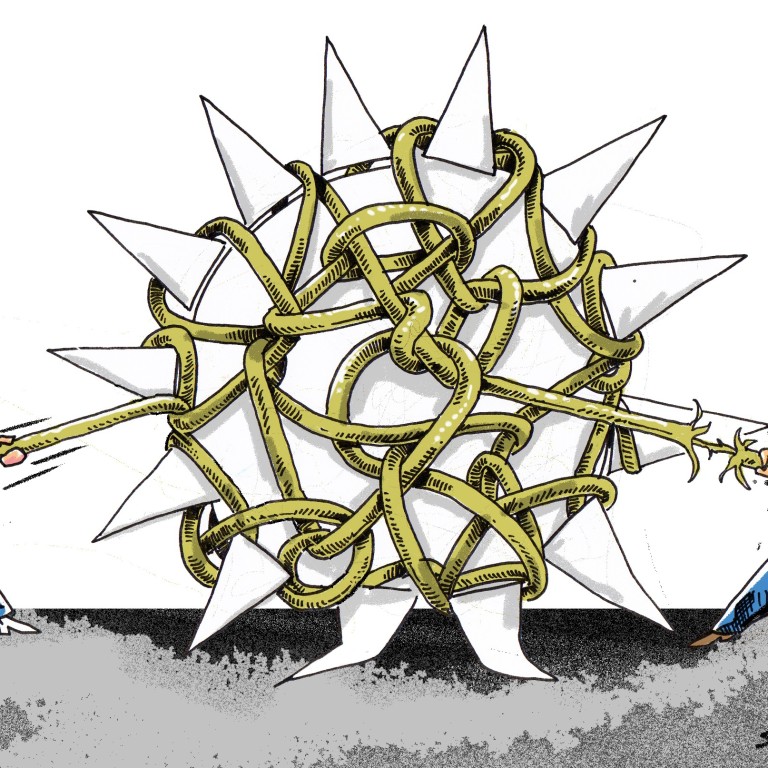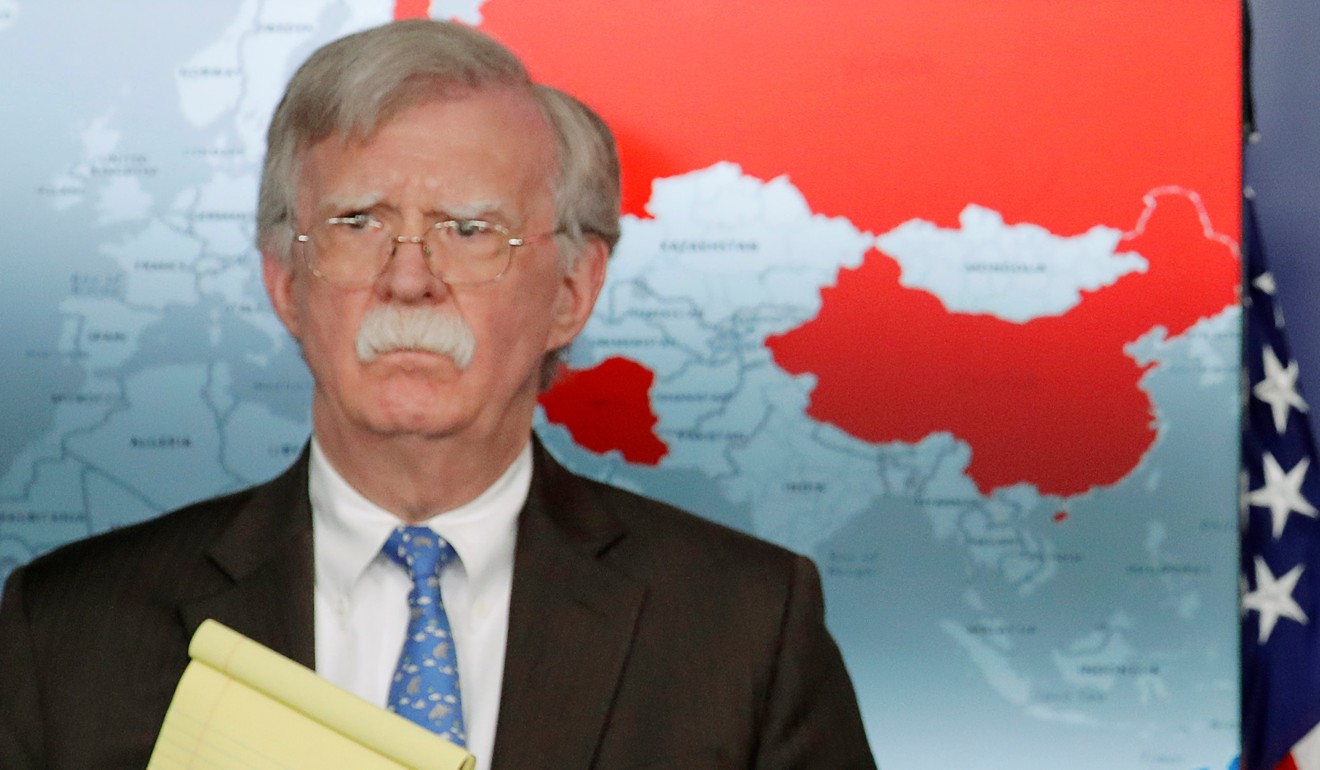
As US-China ties sour, Washington is too busy supporting Taipei to celebrate 40 years of relations with Beijing
- Beijing may have won over Taipei’s former diplomatic partners, but on the 40th anniversary of official US-China ties, it has clearly been out-lobbied and outmanoeuvred in the US capital
In April, the US-China relationship observed another significant milestone, and one intrinsically tied to the anniversary of normalised relations: the 40th anniversary of the Taiwan Relations Act. The events and speeches commemorating this anniversary, and the government participation in such events, highlight how 40 years after the switch, the US-Taiwan relationship is arguably stronger than ever, while US-China relations continues to deteriorate.
While normalising relations with Beijing was supposed to lead to the termination of US ties to Taiwan, the Taiwan Relations Act has instead enabled US-Taiwan relations to remain strong throughout fluctuating US-China ties in the last four decades.
As the US continues to reassess its China policy and pursue a “whole of government approach” to addressing perceived threats to national interests, Congress is asserting its foreign policy powers by leaning hard towards Taiwan in a manner directly aimed at Beijing.
That a member of Congress is connecting opposition to Beijing with support for Taiwan should be a clear indication that the spirit of the normalisation agreement has essentially failed.
This election, Taiwan must choose: Chinese cash or American freedom

A recent event hosted by the Taiwan Economic and Cultural Office in Washington featured 20 members of Congress, including Speaker of the House Nancy Pelosi. Congress also passed a unanimous non-binding resolution, the Taiwan Assurance Act, to mark the occasion.
Congress did nothing to mark the 40th anniversary of normalised relations with China. Instead, its actions show that four decades has done little to change how it views the trilateral relationship.
As the US-China relationship continues to deteriorate, China should be seeking every means to foster greater mutual understanding and reduce tensions with the US, and especially with Congress.
40 years after the US chose China, US-Taiwan ties couldn’t be stronger
I worked at the Library of Congress for 47 years in close concert with members of Congress. I witnessed how lobbyists, especially from Taiwan, could influence members and inspire Congressional action that was at times in stark contrast to policy coming from the White House.
I found that House members in particular, because of their short two-year terms, were less inclined to look out for the best interests of their constituents and were simply opportunists looking to win re-election and foster their own sense of self-importance. The Taiwan lobby is aware of this and has used it to its advantage.

It is not just Congress that is openly moving closer to Taiwan. National Security Adviser John Bolton recently met the head of Taiwan's National Security Council, the first such meeting between the US and Chinese counterparts since Washington switched recognition to Beijing in 1979.
China’s ‘grand plan’ is to push the US out of Asia
Surely Beijing must know this – which prompts the question of why Xi isn't trying harder to make the US understand the complexities of the Taiwan issue. Does Xi himself really care about Taiwan? Or does he feel forced to use propaganda about Taiwan purely for domestic political reasons?
The failure to appropriately acknowledge the anniversary of normalised relations, taken alongside the multifaceted celebration of the Taiwan Relations Act anniversary and the increasingly bold actions of the Trump administration regarding Taiwan, should indicate to Beijing how far US-China relations have slid and how it has failed to lobby on its own behalf in Washington.
As the Taiwan lobby continues to be one of the strongest and most influential on Capitol Hill, I wonder what the Chinese Ministry of Foreign Affairs is doing in the US. In the 1960s, 1970s and 1980s, many members of Congress and government officials were eager for closer US-China ties and opportunities for engagement.
Today, I do not see any senator, representative or member of the Trump administration who supports fair treatment of China or is willing to approach the Taiwan issue with sensitivity, patience and geopolitical awareness. These three things will be needed to resolve US-China tensions and to ensure continued peace in the Taiwan Strait.
Chi Wang, a former head of the Chinese section of the US Library of Congress, is president of the US-China Policy Foundation

